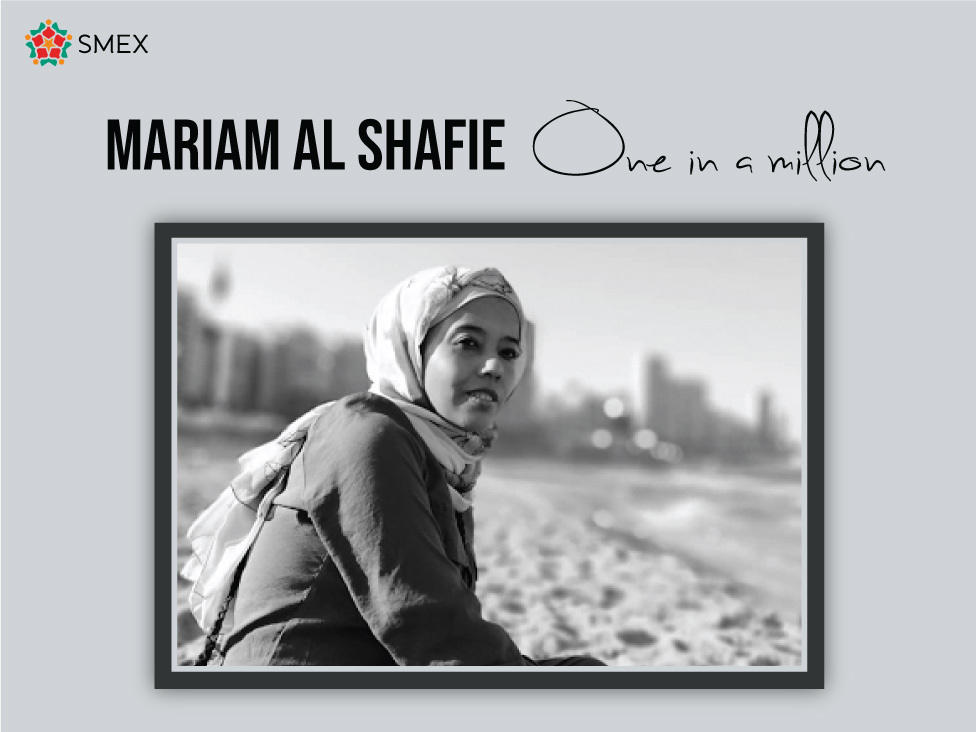SMEX welcomes applications for the Mariam Al-Shafei Fellowship on Technology and Human Rights for the year 2024. This fellowship commemorates the legacy of our beloved colleague Mariam Al-Shafei and brings together digital rights advocates from West Asia and North Africa to collaborate, research, innovate, and address issues and challenges at the intersection of technology and human rights in our region.
We invite fellows to undertake one-year research, policy analysis, or technology development projects based on their areas of interest and expertise. SMEX will offer technical mentorship, skills-building and networking opportunities, resources for research, advocacy support, and overall room for the fellows to endeavor on the topic of their choosing.
For the year 2024, SMEX will be welcoming five non-resident fellows committed to working on the following topics:
- Digital Resilience in the Global South
- Internet Governance in West Asia and North Africa
- Freedom of Expression in Lebanon
- Sexual and Reproductive Health Rights (SRHR) and Digital Rights
- Feminism and Digital Rights
About the Fellowship
The Mariam Al-Shafei Fellowship on Technology and Human Rights is open to early to mid-career candidates based in or with significant ties to West Asia and North Africa. Individuals whose work contributes to advancing civic issues at the intersection of technology and society, including data scientists, sociologists, policy experts, journalists, digital rights activists, economists, artists, and actors from relevant areas, are encouraged to apply. Since projects will heavily rely on research, we invite those currently enrolled in or recently completed postgraduate work to apply for this fellowship.
About Mariam A-Shafei
This fellowship owes its name to our dear friend and colleague, Mariam Al-Shafei, who left this world on December 29, 2022. Mariam’s sudden death occurred just as SMEX was launching this fellowship, and she was part of the team that put it together. Renaming the fellowship in her name is a tribute to Mariam’s memory and contribution to the lives of everyone who knew her and those yet to know her story. Read more about Mariam Al-Shafei’s life and her championing of internet accessibility for people with language impairment.

What does SMEX expect from the fellows?
This 10-month, part-time fellowship requires a commitment of approximately 15 hours per week, including active participation in monthly virtual meetings. Fellows will report directly to the Fellowship Coordinator, maintaining regular communication with their line manager. They will work closely with mentors to create project plans and timelines. Progress reports highlighting challenges, lessons learned, and major achievements must be submitted monthly to SMEX, ensuring transparency and adaptability throughout the fellowship.
What does SMEX offer fellows?
- Working with a mentor who is a technical expert in a field related to the fellow’s topic
- Monthly meetings with a mentor and/or fellowship program manager to support the fellows as they execute their approved work plan, as well as quarterly convening for the entire cohort to share their progress and benefit from peer support and feedback
- A monthly stipend of $900 net
- Fully paid travel and accommodation to attend SMEX’s annual Bread&Net event
- Access to SMEX’s extensive digital rights network, including coalitions SMEX convenes and introductions to practitioners who may offer platforms and other opportunities for collaboration
- Training related to digital security and campaigning
- Additional funds may be available to cover costs associated with attending one additional conference or meeting of direct relevance to the topic researched and located in the WANA region
In addition to these benefits, it’s important to note that this is a non-resident fellowship program with remote engagement as the primary mode of interaction. Fellows will be invited to SMEX’s annual event, Bread&Net. Applicants selected from Beirut have the option to utilize SMEX’s resources at their offices. For fellows based abroad, there is the possibility of requesting an additional fixed Technology Stipend to cover IT costs, which can improve remote meeting participation and provide support for necessary digital resources. The fellowship program is designed to be flexible and dynamic, accommodating each fellow’s unique skills, interests, and experiences.
Eligibility and Criteria
Ideal candidates will have strong English and Arabic research, writing, and speaking skills. Applicants are expected to have demonstrable experience in and commitment to protecting and promoting digital rights and internet freedoms. The strongest candidates will have thought about how their project ‘grows the field’ of digital rights.
- Geographical Eligibility: Applicants should be based in or have significant ties to the West Asia and North Africa (WANA) region.
- Professional Background: The fellowship is open to early to mid-career professionals, including but not limited to data scientists, sociologists, policy experts, journalists, digital rights activists, economists, artists, and individuals from related fields.
- Education: Candidates currently enrolled in or have recently completed postgraduate studies are encouraged to apply, as the fellowship projects will require a research-oriented approach.
- Language Skills: Proficiency in English and Arabic, including strong research, writing, and speaking abilities, is essential.
- Commitment to Digital Rights: Applicants should demonstrate commitment to protecting and promoting digital rights and internet freedoms.
- Project Relevance: Ideal candidates will have thoughtfully considered how their proposed project contributes to advancing digital rights and meaningfully ‘growing the field.’
- Availability: Fellows must be available to commit approximately 15 hours per week to their fellowship responsibilities, including active participation in monthly virtual meetings.
- Collaborative Spirit: Fellows should be open to collaboration, peer support, and mentor engagement.
- Professional References: Applicants must provide contact information for two professional references who can speak to their qualifications and commitment.
These criteria ensure the fellowship is open to dedicated individuals with the right qualifications and commitment to advancing technology and human rights in the WANA region. Please carefully review these criteria before submitting your application.
How to Apply
Please submit the following documents to this form by January 15. Files should be labeled: ‘[type of document, e.g. CV]-[family name, first name].’
- Curriculum vitae (CV)
- A ‘statement of interest’ indicating your project proposal (a general outline and tactics to be pursued where applicable). All statements should be 2 pages (750 words) max.
- Contact information for two professional references.
A writing/project sample (this can include a link to your social media page(s)).










